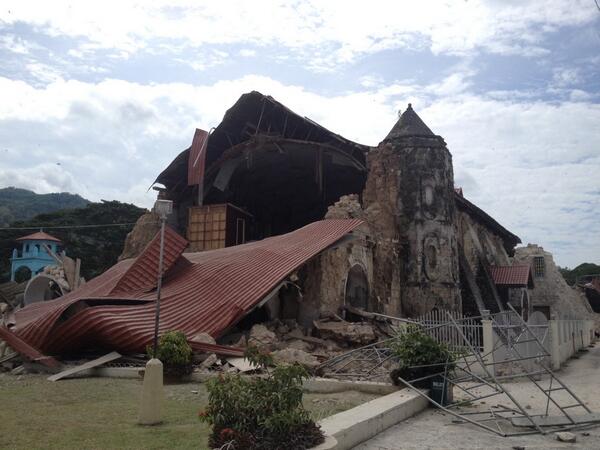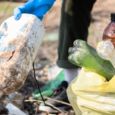Earthquake Preparedness Tips That Can Save Your Life
When in Manila and living in areas that sit atop fault lines like Marikina, Pasig, Paranaque, and Makati; earthquake preparedness can save lives.
The images of the devastating 1990 earthquake are still vivid in my mind. The feeling of dread that engulfed me the moment the ground started shaking was too much for a 7-year old boy who didn’t know what to do. I could only imagine what the people in Bohol, Cebu, and other affected areas felt early this morning when a 7.2 magnitude quake rocked the Visayas region.
Strong quake hits Bohol and neighboring provinces
Many people say that earthquakes are way more terrible than super typhoons because we can always predict when the latter is going to strike. Earthquakes are like thieves. They strike unexpectedly. And their wrath is more terrifying.
We’ve seen news stories about the aftermath all day and though the idea of an earthquake rocking the metro is very scary; we have to be prepared. Being prepared is the only way to stay safe.
According to a disaster management information website, the earthquake that hit Luzon in 1990 is one of the largest and deadliest in the world. With a magnitude of 7.7, it claimed more than a thousand lives.
It’s scary to think that today’s quake can be on the same league as the one 23 years ago. The quake that jolted Visayas early today already claimed 85 lives (as of writing) and caused massive damages to buildings, roads, and even bridges. According to a report from the Huffington Post, aside from collapsed roads in Bohol, stampedes occurred in Cebu where 5 people were crushed to death while 8 were injured.
Even a the world-famous chocolate hills in Bohol were not spared. This photo shows a huge chunk of the hill was affected. It’s that powerful.
Earthquake preparedness will keep you safe–and alive
We never know when the earth will rock. And that’s what makes it even more terrifying. What we can do, aside from pray for safety, is to equip ourselves with proper knowledge on earthquake preparedness.
Here are some tips on what to do before, during, and after an earthquake:
Before an earthquake
- Make sure that you always have a working flashlight, extra batteries, first aid kits, fire extinguisher, and food supplies in a container that’s easy to grab when disaster strikes.
- Learn earthquake drills. Many schools and offices regularly do this so pay attention.
- Come up with an emergency plan and discuss it with your family. This should include meeting places, people to contact, etc.
- Make sure that each family member has something that can call attention in case they get trapped, like a whistle, so they can be rescued.
During an earthquake
- Keep calm. It’ll be hard to stay calm initially because you’ll get scared, which is normal, but always remember that you need presence of mind to stay alive. Don’t let fear take over.
- If you’re indoor, stay inside. The Center for Disease Control and Prevention (CDC) has 3 tips: drop, cover, and hold on. Drop on the floor on your hands and knees, take cover in a sturdy table or any low-lying furniture that won’t fall on you, and hold on. You’ll have a lesser chance of getting injured by staying away from falling objects.
- Don’t run outside or to another room while everything’s still shaking.
- Don’t stand under a doorway. Contrary to popular belief, this isn’t stronger than other parts of the house. You’re better off hiding under a table.
- Stay away from windows and glass doors.
- Always protect your head and neck. When you’re crouched under a table, put both hands over your head.
- If you’re in the kitchen, turn off the stove.
- Don’t light matches or use any flammable tools because the tremor could’ve broken gas pipes.
- If you’re outside, stay away from buildings, anything that has glass, and electrical poles.
- Stay low on the ground to avoid falling.
- If you’re in a moving vehicle, stop quickly and safely. Park the car on the shoulder but make sure that you’re far from any electrical poles or trees that may fall on you. Resist the temptation to go out unless really necessary.
- If you’re near the beach, go to higher grounds immediately.
- And oh, I know you’ll be tempted to take videos or photos of everything, which is okay only if you’re using it to spread information but it should be the last thing you do. Remember that your safety is more important than getting hundreds of Facebook likes.
After an earthquake
- After the ground stops shaking, stay still for a few seconds and check if it’s safe to get out of hiding and move.
- Check for injuries. If you’re with others, see if everyone is unharmed. Apply first aid when necessary.
- Try to smell gas. Broken gas pipes are common after earthquakes, so make sure you don’t light any flame. If you do smell something, open windows immediately. Similarly, be careful when using electrical appliances.
- Exercise caution when moving around to prevent shards of glasses from cutting you.
- If you’re outside, stay away from damaged buildings and electrical poles.
- Be extra careful when driving and watch out for sinkholes and broken pavements.
- Stay away from beaches.
- Always expect aftershocks.
There’s no way we can predict when an earthquake will strike, so our best chances for survival is to be ready. Earthquake preparedness is very important. Hopefully, we won’t have to find ourselves in a situation where we need to remember these. But take these tips on earthquake preparedness to heart just in case.





